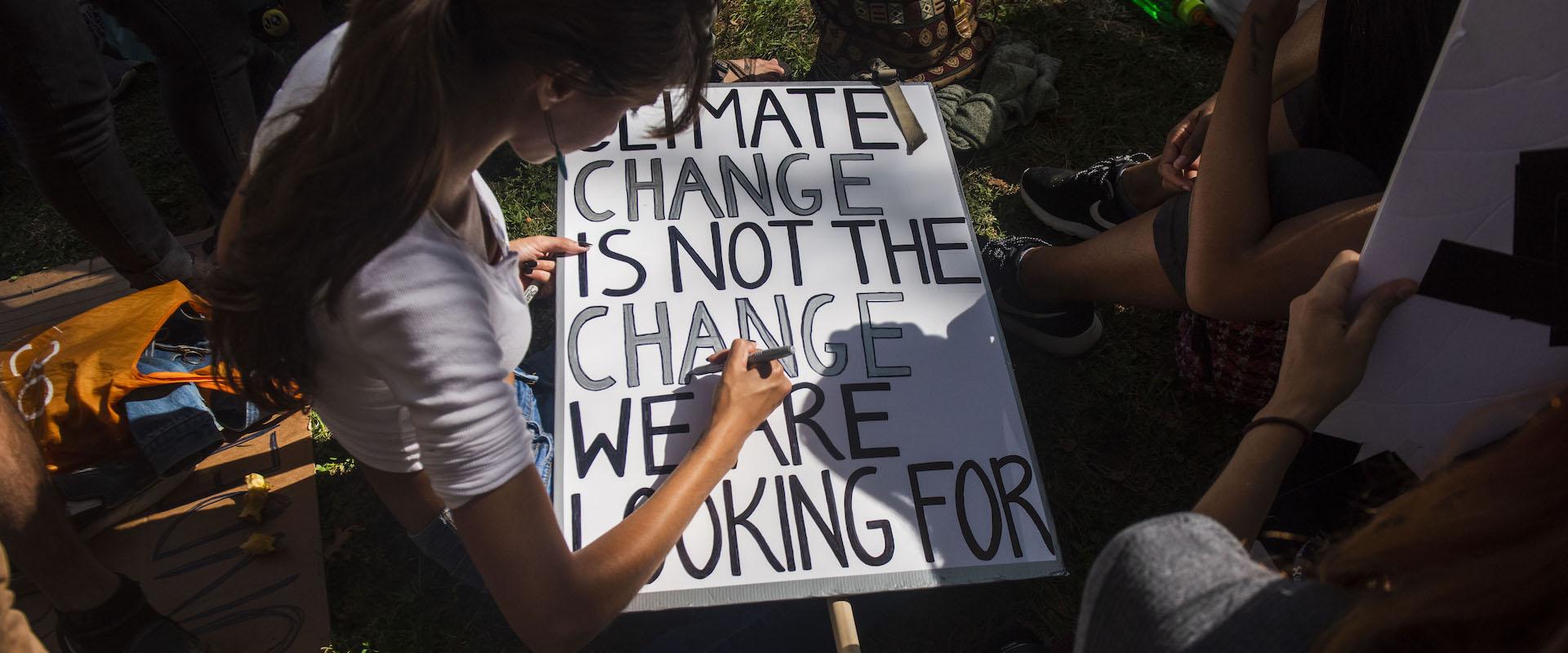The 27th session of the Conference of Parties to the United Nations Framework Convention on Climate Change—otherwise known as COP 27—opens Sunday, 6 November 2022. Hosted by the Government of Egypt in Sharm El-Sheikh, COP 27 is an opportunity for the international community to catalyse much-needed progress on climate action. It is also a chance to highlight Africa’s leadership in tackling climate change and its vision for a just and sustainable future that leaves no one behind.
COP is an annual event that stretches back to 1995, when the United Nations Framework Convention on Climate Change (UNFCCC) established an international environmental treaty to combat “dangerous human interference with the climate system”. It was ratified by 198 countries, known as the Parties to the Convention, and their annual meeting is called the Conference of the Parties—COP.
The two-week long conference brings the Parties together with world leaders, scientific experts, civil society members and UN representatives to identify responses to the climate crisis and facilitate their implementation. COP 27 will be one of the largest COPs ever held, with an anticipated 35,000 participants. It will also undoubtedly be one of the most contentious COPs, as the world struggles not only with climate change but also with conflict, economic downturn, COVID-19, biodiversity loss and more. Amidst these challenges, the Egypt COP Presidency will aim to advance progress on mitigation, adaptation, financing and international collaboration.
We know that climate impacts are reversing gains in gender equality. Women and girls face greater obstacles to climate adaptation, disproportionate economic repercussions, increased unpaid care and domestic work, and heightened risk of violence due to the crisis’s compounding impacts. These deeply entrenched gender inequalities have worsened post-COVID 19, meaning more women and girls are exposed to climate risks—and are less empowered to drive solutions.
We also know that women are crucial to the fight against climate change. We must shift the narrative away from women and girls as vulnerable victims and instead promote women’s leadership and participation in all climate action. As farmers, producers, workers, consumers and household managers, women are important agents of change in implementing low-carbon, climate-resilient development pathways. Emerging evidence suggests that women’s representation in national parliaments can lead countries to adopt more stringent climate change policies. Rural and indigenous women on the frontlines of the crisis are deploying ancestral knowledge and practices to build resilience in a changing climate, and young women and girls have been leading global movements that have effectively shifted the climate discourse in a matter of years.
At the 66th session of the Commission on the Status of Women (CSW 66), which took place in March 2022, Member States recognized women and girls’ full and equal participation, decision-making and leadership as key to effective climate action. The Commission also petitioned governments to integrate a gender perspective in design, funding, implementation, monitoring and evaluation of all climate change policies and programmes.
In light of this, UN Women calls on all Parties to rapidly scale up implementation of all commitments on gender equality and climate. We call on all Parties to increase support for a just transition that places the elimination of poverty and all inequalities above economic growth, prioritizing care for people and planet.
Source:unwomen.org


